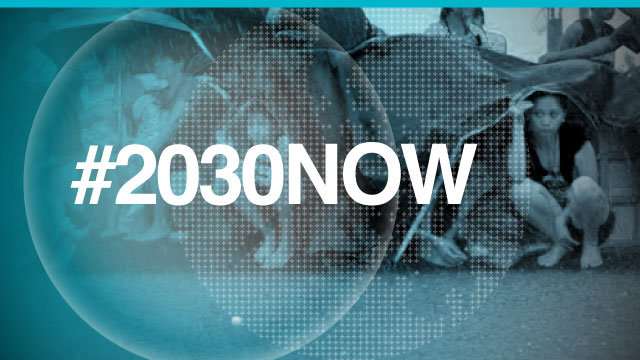SUMMARY
This is AI generated summarization, which may have errors. For context, always refer to the full article.

Seattle, USA – This year’s Social Good Summit is about thinking longer-term, challenging old assumptions.
Certainly we live that short-term harried, sound bite, everyone-has-a-camera mindset every day in our business and personal lives. It creates an epidemic where we don’t think about sustainable solutions and leads us to jump to conclusions that satisfy a short-term symptom, but leave the long-term root cause unaddressed or festering.
This problem of short-term thinking is just as epidemic in the social sector as it is in the corporate and public sectors, for a number of reasons – donors like new and innovative and don’t stick to a problem long enough to give it sufficient resources; we often don’t execute social programs with enough fidelity (and again, resources) to truly measure their long-term effectiveness, and turnover is high in the social sector given lower comp and stressful work, which creates inconsistency in sustaining effective programs over the long-term. The negative effects often times lead to citizens feeling that “we can’t solve big social problems” …
… when in fact, we can – in the United States, violent crime has dropped 40% over the last 25 years, teen pregnancy is down 50% over the last 50 years, and CO2 emissions are down by 2/3 vs. 40 years go. Each of those must have seemed intractable at times; in the same way poverty and educational achievement do today. Internationally, rates of child mortality and disease prevention are on positive curves at the same time human and drug trafficking are still chronic and growing in many parts of the world.
There are intensely competing forces out in the world and unless we take the time to think and act longer-term, the prognosis for many social challenges can be dire. But there is an “answer,” in part new to these times of networked, connected, informed citizens and in part as old as the first times we started to collectively care about our fellow humans and try to solve big problems together.
It’s about the power of truly, deeply committed individuals, emphasis on “truly and deeply”. Those words can sound like hyperbole but they mean something very significant and unique in real life. The ability of that kind of person to have impact has accelerated in a connected, networked world because 1) her / his own work can spread faster, more effectively, and 2) because the ability to connect to other individuals and groups is so far greater, than even 10 years.
And then it isn’t just the power of one individual, but of a collective of like-minded souls.
We all know the eloquence of “Never doubt that a small group of thoughtful, committed citizens can change the world; indeed, it’s the only thing that ever has.” The edit that we can make in 2013 is about “… one thoughtful, truly committed citizen … its now another thing the can.” This can sound a little conceptual, but what the Social Good Summit is about is making this real, about empowering people to take action.
I’ve had the profound, humbling privilege of working for the last 15 years with NGO leaders and philanthropists that are in this 99th percentile, all-in, truly and deeply committed group and what they can make possible is powerful beyond words. Because of those people, we longer have time to think short-term. –Rappler.com
#2030NOW is the official hashtage of PH+SocialGood: The Manila Social Good Summit 2013
This article was originally published on PlusSocialGood.Org.
Add a comment
How does this make you feel?
There are no comments yet. Add your comment to start the conversation.